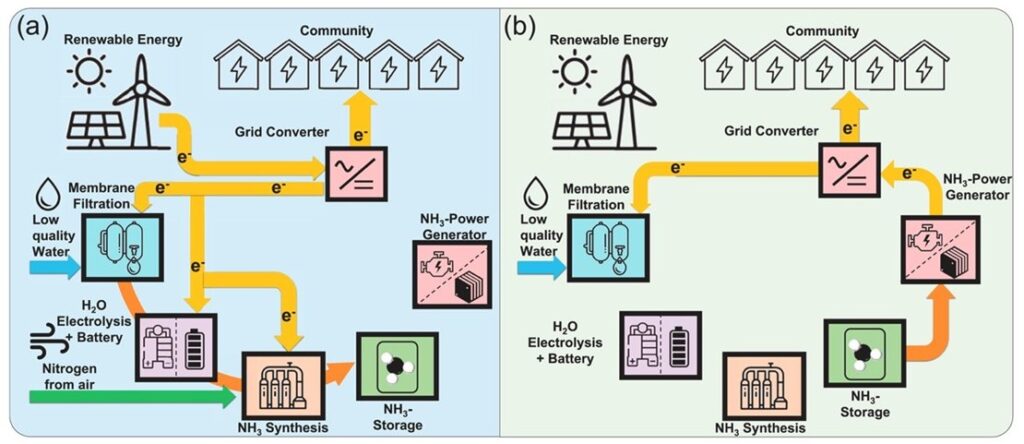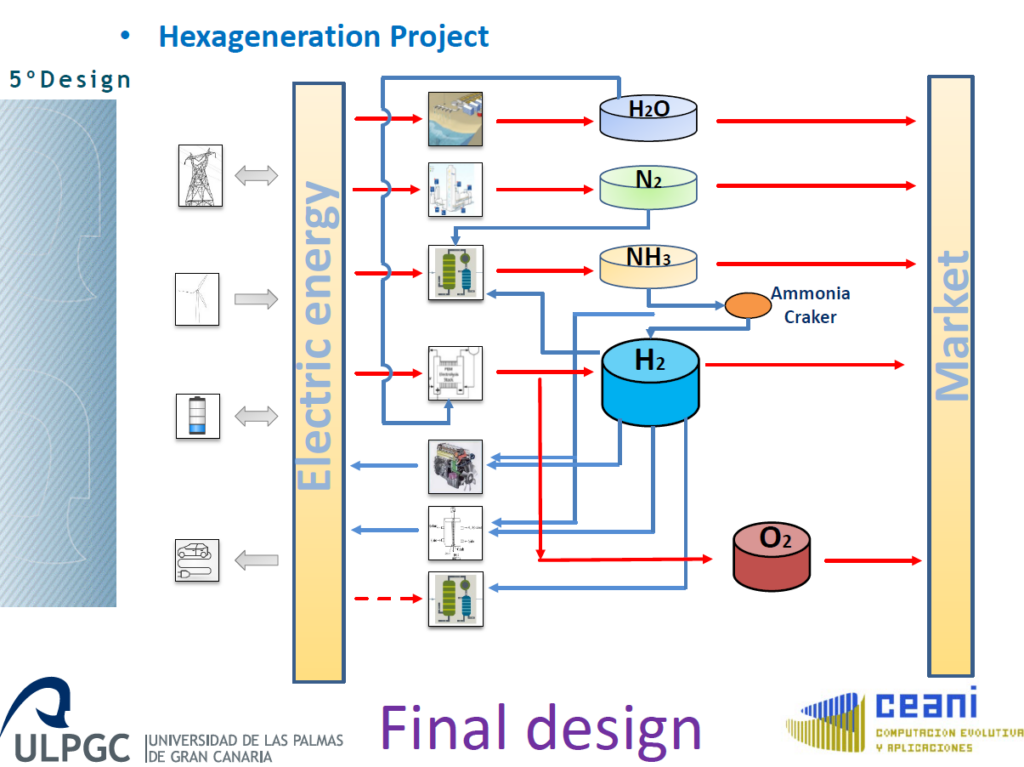Renewable ammonia production on Curaçao and the Canary Islands
By Julian Atchison on April 21, 2022
This week we explore two sets of academic analyses from the University of Twente and the University of Las Palmas de Gran Canaria. Both author groups highlight the huge potential for renewable energy and ammonia fuel to wean island states off fossil fuel use.
Sustainable energy production for Small Island Developing States

The Small Island Developing States (SIDS) are a group of 38 island nations in the Caribbean, the Pacific, the Atlantic, the Indian Ocean and the South China Sea, that face unique vulnerabilities. Where energy is concerned, these island nations often have high carbon footprints per capita and rely heavily on fossil fuels for electricity & industry. With a population of just 155,000 people, Curaçao has an emissions intensity of nearly 17 tonnes CO2 emitted per capita per year: one of the world’s highest.
Researchers from the University of Twente propose a highly-integrated energy generation and storage system for the island nation. Based on prodigious wind power resources, battery storage, electrolysis and conventional ammonia production, renewable ammonia can be produced, stored and used for power generation in low wind-power output periods. The levelised cost of electricity for this theoretical system is already competitive with electricity produced from heavy fuel oil: Curaçao’s current method of power generation.
The wind in Curaçao is formidable for renewables. Unfortunately, generation and demand are out of phase as the months with the highest demand for electricity are those with the lowest wind speeds and poorest consistency. That is why green ammonia is a key ingredient in the energy transition on this island.
Dr. J. A Faria, senior author of the research paper in a news update from the University of Twente: New process design for sustainable energy for Small Island Developing States (SIDS), 7 Apr 2022
Beyond energy resiliency, there is also potential for these island nations to become energy exporters in their own right:
Countries like Japan, Germany, The Netherlands, and the UK have already drafted clear plans to use “green” ammonia as zero-carbon fuel and hydrogen carrier in the next ten years. These new projects will expand the annual production of ammonia beyond the current 183 million tons per year, which are primarily employed in the production of fertilizers. Extrapolating this to SIDS with large potential for renewables (wind and solar) could transform these islands from energy importers to self-sustained or even net energy exporters. Further research on piloting these concepts in SIDS is essential to demonstrate their practical value.
News update from the University of Twente: New process design for sustainable energy for Small Island Developing States (SIDS), 7 Apr 2022
Hexa-generation in the Canary Islands
At last year’s Ammonia Energy conference, researchers from the University of Las Palmas de Gran Canaria presented their concept for a “hexa-generation” energy system (video abstract). In this modular, decentralised setup, seawater, air and offshore wind are used to generate electricity, water, hydrogen, oxygen, nitrogen and – ultimately – ammonia.

The Canaries are highly dependent on food, fertiliser & fossil fuel imports, as well as desalinated water. The current series of small electrical grids suffer from frequent outages and fuel shortages, and unemployment is high. Tapping into the significant offshore wind resources around the Canaries presents huge benefits in terms of employment, access to reliable power systems and drinking water.
Where ammonia is concerned, domestic fertiliser production, electricity generation, cracking into hydrogen fuel for vehicular transport and maritime fuel are all distinct possibilities. Ports on the Canaries are strategically located and already service a high number of vessels each year. Significant bunkering infrastructure currently dedicated to conventional marine fuels (~2 million tonnes per year at Las Palmas Port) could also be converted to provide ammonia and other e-fuel services. The researchers are currently working to fund & establish a pilot hexa-generation module on Gran Canaria.